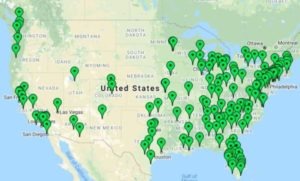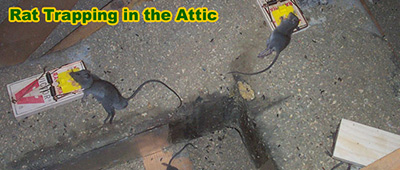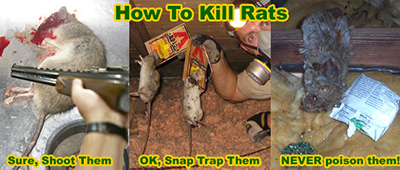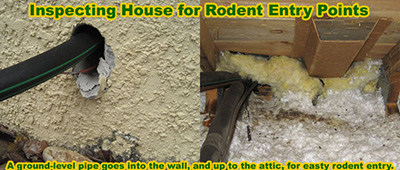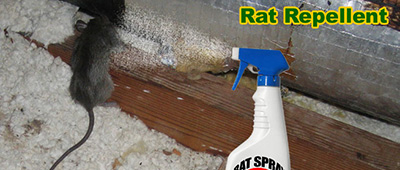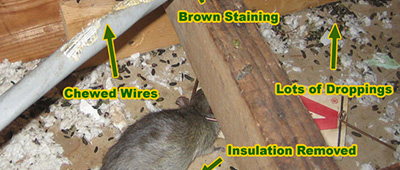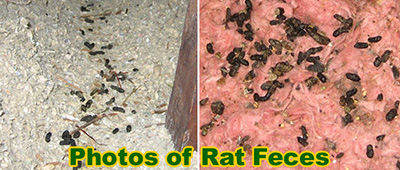It is often believed that rats hibernate throughout the colder months of winter, but this is not the case. They are slightly less active during the colder months, but they certainly don't hibernate. Instead, what they do is invade properties - homes and commercial buildings.

Not only that, your home provides a steady source of food, usually coming from your kitchen, and also plenty of water sources also. The food and water could be your cat's or dog's bowls, or they could be crumbs on the kitchen floor, the garbage bag in the garage … Wherever there is food, there are rats, and they'll eat all the things that you turn your nose up at. Essentially, your garbage bag offers the average rat a five star buffet that they'll soon be inviting all of their pals along to.
If rats can't get inside your home, there are plenty of places outside it that provide the perfect cosy spot. Rats are very good at digging, and they'll make burrows beneath the ground. They'll dig under and around human-built structures in the same way that they'll dig under and around rock walls, large boulders, and even at the bottom of trees.
If they can't find any of these structures, they'll turn to open spaces, and that means your beautiful green lawn could soon come under attack.
They love caves too, and anything else that resembles caves. When the weather gets colder and they feel the need to find a warmer space to build a nest, dark corners in your basement or under the stairs that lead to your home could provide a perfect substitute for a dark and damp cave.
You will want to make sure that your garage is secure during both the warmer and colder months of the year. The reason for this is because the space is often unvisited by humans, thus providing another perfect place to rats to set up home. These rats will then start having a good root around in your garage, and before you know it, the rodents have crept into the ventilation systems and engine compartments of your vehicle, and started to nibble through the electrical wiring and cables within it. As you can imagine, this poses a very real and serious threat to life.
If you don't have a garage, or you're sure it is rat-proof, you should then turn your attention to other outbuildings, and also the outside of your home. If there are any patches of damage out there, or any sections which the rats deem to be weak, they will work on it with their super sharp teeth and claws until they have found a way in. Make sure your home is well-maintained. Attics are prime rat spots in residential buildings, as well as wall cavities, crawl spaces, and other insulated areas also. If the spot is deep, dark and hidden, un-exposed (usually) by humans, you can guarantee that a rat or mouse has had a cheeky little look around
Go back to the Rats in the Attic home page.
Do rats like cold places?
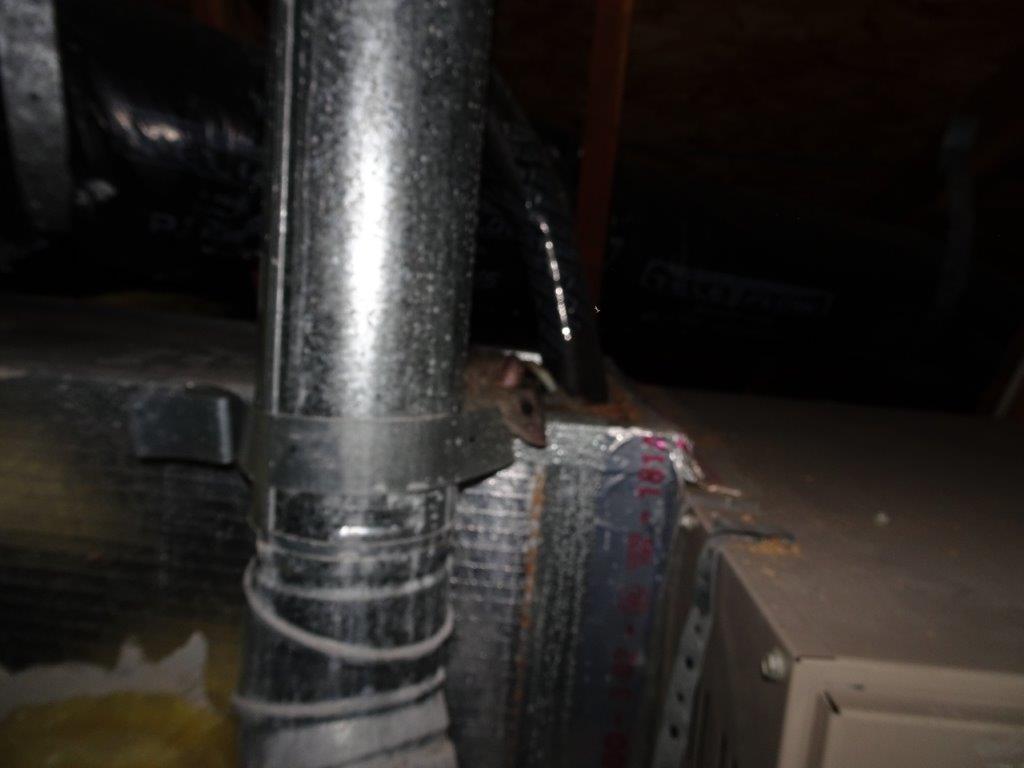
Do rats enjoy cold weather?
Rats will change how they act depending on the weather. In fact, they are quite intuitive creatures, and they'll often change things about their day to day life in order to live better in their surroundings. When the situation is spot on, for example, a rat will increase the way at which is reproduces. When rat numbers are down, for example, curing a human rat-trap culling, the rat will also increase the rate at which it reproduces, in order to ensure continuation of its species.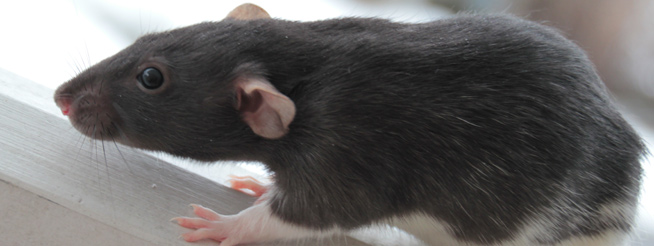
As a general rule, rats do not hibernate for the winter. They don't particularly like the cold weather (who does?), but they won't go to sleep through it all. They have much more important things to do during that time, like find food, hoard food, eat food, oh, and mate too.
Their activities tend to be pretty consistent throughout the year, but they will move to find warmer shelters for the winter months. They'll be more content to live outside during the summer when it is warm, but during the winter, when the weather gets cold, they'll be looking for a way to break into your home.
Not just human houses that are a prime target for rats during the colder weather, when they are looking for a much safer and warmer place to call home, outdoor sheds, garages, and other outbuildings also provide everything the rodent is looking for. They don't like being out in the cold weather, so you'll rarely see them outside, but they will flourish in the warmth of an un-cared-for spot of your home if you leave them alone for long enough.
Rats don't like the cold weather, but they power on through. They're adaptable, and they simply change to keep themselves warm and with a constant source of food when the temperature starts to drop. Just like we do - we stock up our freezers for the winter, and we also turn the heating up indoors. It's no different really.
Go back to the Rats in the Attic home page.
When it comes to cold locations, rats aren’t necessarily fond of them. However, they have been able to adapt to the environment and learn to survive in these weather conditions. Rats will be able to survive in colder weather conditions without many problems as long as they have what they need to help them in surviving, such as proper food sources and shelter.
Rats spend the year looking for and living in different shelters. Because of this, they are able to easily adapt to a change in the environment. Unlike most animals, rats aren’t the type that go into hibernation during the wintertime. Rather, they tend to pick a shelter with the best environment and atmosphere for them to live in depending on the weather conditions.
There are instances where rats would prefer to reside in colder areas if the weather conditions are hotter and more humid. But this doesn’t exactly mean they prefer colder places. In some cases, a location that has better insulation and heat is more suitable for winter, which is why rats prefer these places during the cold season.
Some of the places rats will often look out for are manmade structures. During the cold days of the year, this becomes one of the best spots for rats to reside because of the insulation in these properties. They will often stay in crawlspaces and similar spots of the home where they can be warm and protected from the cold weather. Abandoned cars also make great shelters for rats because of the ventilation system. Both of these locations also allow rats to stay away from their predators easily.
Depending on what is most accessible to them, rats will also live in natural shelters around them. Rats aren’t new to these places, which allows them to identify what shelters and locations will be best for them when it comes to choosing a home based on the weather. They may be able to find shelters that work best both during the cold and hot seasons. One thing they will consider in choosing a place to stay is whether or not it has a food source nearby or if predators are present in the vicinity.
In some cases, rats will opt to dig underneath a rock to create their homes. There are also times where they will do this on the open ground even without a wall to block off their shelter. If the weather is much colder, the burrow will be made deeper. However, in hotter weather, it will usually only be deep enough to keep them protected from the things that can harm them outside.

